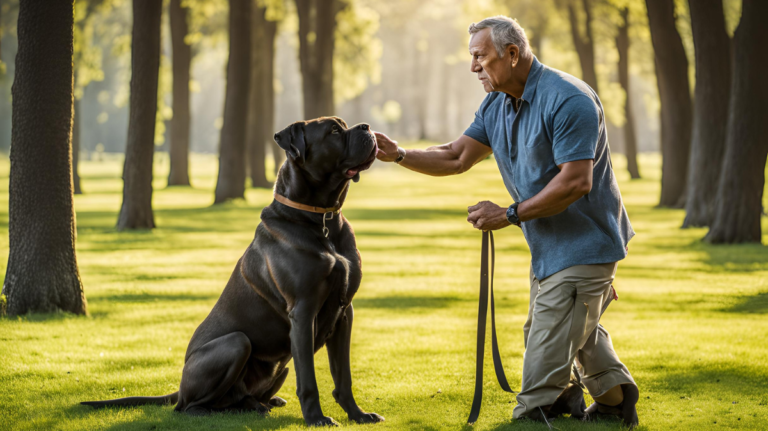Key Takeaways
| Tip | Description |
|---|---|
| Consistency | Maintain a steady routine to enhance learning. |
| Patience | Essential when training, as German Shepherds may take time to adapt. |
| Positive Reinforcement | Use rewards to encourage desired behavior. |
| Socialization | Introduce your dog to different environments and people. |
| Professional Guidance | Seek expert advice for specialized training. |

Understanding German Shepherd Behavior
German Shepherds are known for their intelligence and loyalty. Understanding their behavior is crucial for effective training. These dogs are naturally protective and have a strong drive to work. Recognizing these traits early on helps in tailoring the training approach.
“The bond with a true dog is as lasting as the ties of this earth will ever be.” – Konrad Lorenz
Common Behavioral Traits
- Loyalty: German Shepherds form strong bonds with their owners.
- Intelligence: They’re quick learners but require mental stimulation.
Behavioral Traits
| Trait | Description |
|---|---|
| Loyalty | Strong bond with owner |
| Intelligence | Quick in learning and adaptable |
| Energy | High energy levels needing regular exercise |

Importance of Early Socialization
Early socialization is critical for your German Shepherd to grow into a well-adjusted adult dog. Exposing them to a variety of people, environments, and other animals is beneficial.
Socialization Tips
- Puppy Classes: Enroll your pup in a class.
- Regular Walks: Explore different environments.
- Play Dates: Arrange play sessions with other dogs.
Quote: “A well-socialized dog is a happy dog.”
Effective Training Techniques
Utilizing effective training techniques is essential. German Shepherds respond well to training when positive methods are employed.
Key Techniques
- Positive Reinforcement: Reward with treats or praise.
- Clicker Training: Use a click sound to mark desired behaviors.
- Consistency: Stick to a routine to avoid confusion.
Training Techniques
| Technique | Description |
|---|---|
| Positive Reinforcement | Reward-based system to encourage good behavior |
| Clicker Training | Uses clicker to mark and reward positive actions |
| Consistency | Establish a routine for predictable outcomes |

Addressing Challenging Behaviors
Every dog may present challenges. Understanding these can help tailor your training approach effectively.
Common Challenges
- Barking: Can be controlled with training.
- Chewing: Direct it towards appropriate toys.
- Jumping: Teach them to greet people calmly.
Training isn’t about being perfect. It’s about progress.

Tools and Equipment for Training
Choosing the right tools can make a significant difference in your training sessions.
Essential Tools
- Harness: Provides better control than a collar.
- Leash: An essential tool for guiding your dog.
- Training Treats: Use healthy treats as rewards.
Essential Training Tools
| Tool | Purpose |
|---|---|
| Harness | Offers better control over your dog |
| Leash | Guides and controls your dog during training |
| Training Treats | Reward for successful commands and behaviors |
Professional Training Guidance
Seeking professional guidance can be beneficial, especially for specialized training needs. Certified trainers can offer insights that might not be apparent to the average dog owner.
Benefits of Professional Training
- Expertise: Trainers bring years of experience.
- Socialization Opportunities: Classes with other dogs.
- Custom Programs: Tailored to your dog’s needs.

Conclusion
Training a German Shepherd requires a combination of patience, consistency, and the use of positive reinforcement techniques. By understanding their unique characteristics and addressing specific training needs, you can develop a harmonious relationship with your dog. Additionally, leveraging professional expertise can enhance and streamline the training process.

FAQ
What age should I start training my German Shepherd?
Begin as early as 8 weeks old with basic commands and socialization.
How can I prevent my German Shepherd from pulling on the leash?
Use a harness and practice consistent leash training.
Are professional training classes necessary?
While not necessary, they can help with challenging behaviors and offer structured socialization.




